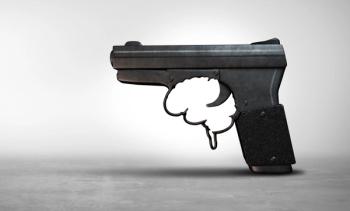
- Psychiatric Times Vol 25 No 6
- Volume 25
- Issue 6
The Body Bears the Burden: Trauma, Dissociation, and Disease, 2nd ed
Traumatology has become an increasingly multidisciplinary field. Originally the province of psychiatry and clinical psychology, the field has now been enriched by the contributions of epidemiologists, neuroscientists, anthropologists, and historians.
by Robert C. Scaer;
Binghamton, NY:
Haworth Medical Press, 2007
259 pages • $39.95 (softcover)
Traumatology has become an increasingly multidisciplinary field. Originally the province of psychiatry and clinical psychology, the field has now been enriched by the contributions of epidemiologists, neuroscientists, anthropologists, and historians. Robert C. Scaer's book, The Body Bears the Burden: Trauma, Dissociation, and Disease, is a contribution from clinical neurology.
Scaer's interest in trauma stems from his experience assessing victims of motor vehicle accidents who have whiplash syndrome. These patients complain of diverse symptoms that often cannot be explained by their physical injuries. Moreover, despite their frequent involvement in litigation, patients with whiplash often fail to improve even after receiving substantial financial compensation for their injuries. These facts have led Scaer to conclude that unresolved previous trauma figures in the etiology of whiplash syndrome. Physical symptoms are not simply the direct result of physical injuries from a car crash. Rather, they are a kind of "body memory" resulting from earlier psychic trauma, such as childhood physical or sexual abuse, in addition to trauma from the accident itself.
Unfortunately, Scaer relies heavily on the ideas of Bessel A. van der Kolk, the Boston University psychiatrist who wrote the Foreword. For example, Scaer endorses the notion that victims often lack a conscious, declarative, narrative memory of the trauma. Instead, following van der Kolk, Scaer argues that the residue of trauma is usually embodied in implicit, procedural, unconscious memory. In other words, the body remembers although the mind cannot.
There are two main problems with this notion. First, there are no solid empirical or theoretical reasons for assuming that implicit memories of trauma are divorced from explicit memories of trauma. The presence of conditioned fear responses, for example, does not preclude vivid narrative accounts of trauma. Second, one cannot assume that pains, panic attacks, and so forth are implicit memories of dissociated (or "repressed") trauma. This dubious assumption provided the theoretical rationale for "recovered memory therapy."
Scaer seems unaware of critiques of the work of van der Kolk and related theorists.1 He also seems unaware that historical scholarship has debunked the idea that Freud retracted his early "seduction theory" of hysteria because it outraged the sensibilities of his Viennese colleagues.2
Surprisingly, Scaer embraces "energy" therapies as a promising approach for treating trauma survivors. Among these curious methods is thought field therapy (TFT). TFT advocates claim rapid cures for an amazing range of ailments after having patients hum a tune and tap their bodies in certain prescribed sequences. To his credit, Scaer acknowledges the evidential support for exposure therapythe only treatment deemed effective for posttraumatic stress disorder by the Institute of Medicine.3 Yet he raises a host of speculative concerns about this behavioral treatment, favoring instead the various energy therapies.
In summary, my enthusiasm for this book is limited.
References:
References
1.
McNally RJ. Remembering Trauma. Cambridge, MA: Belknap Press/Harvard University Press; 2003.
2.
Esterson A. The myth of Freud's ostracism by the medical community in 1896-1905: Jeffrey Masson's assault on truth. Hist Psychol. 2002;5:115-134.
3.
Committee on Treatment of Posttraumatic Stress Disorder, Institute of Medicine. Treatment of Posttraumatic Stress Disorder: An Assessment of the Evidence. Washington, DC: The National Academies Press; 2007.
Articles in this issue
almost 18 years ago
Child and Adolescent Psychiatry: The Next 10 Yearsalmost 18 years ago
The Links Between PTSD and Eating Disordersalmost 18 years ago
ECT Response Prediction: From Good to Greatalmost 18 years ago
Diagnosing and Treating ADHD in Adultsalmost 18 years ago
Evaluation and Management of Low Back Pain: Part 1almost 18 years ago
The Psychodynamic Diagnostic Manual: A Clinically Useful Complement to DSMalmost 18 years ago
Neurotheology: Are We Hardwired for God?almost 18 years ago
Washington Report -- May 2008Newsletter
Receive trusted psychiatric news, expert analysis, and clinical insights — subscribe today to support your practice and your patients.







